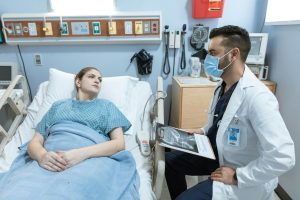
Every woman’s body is unique, and so is her abortion experience. How your body responds to an abortion depends on different factors. How far along are you in your pregnancy? Are you planning to review your health history and medications with your healthcare provider first? What about testing for an STI? These and other questions will help determine what will happen to your body after an abortion.
How Far Along Were You in Your Pregnancy?
As the number of weeks of pregnancy progresses, your body changes in several ways. The following happens in the first few weeks:
- Hormones, such as progesterone, estrogen, oxytocin, and hCG, build.
- Breast tissue and nipples prepare for breastfeeding as they become larger and heavier.
- Fatigue and nausea occur because of the increased hormone levels.
- As your uterus grows, it puts pressure on your bladder, causing the need to urinate more frequently
All abortions involve bleeding and cramping. After an abortion, the shock to your hormonal system takes time to readjust. Depending on how far along you were, it can take several weeks for your body to return to the pre-pregnancy stage.
Your breasts may secrete milk after an abortion and feel enlarged and painful. Depending on the type of abortion, you may experience nausea and diarrhea, which can result in weight loss. You may also experience excessive bleeding and infection due to an incomplete abortion.
Did You Have a Pre-Abortion Health Check?
The Mayo Clinic recommends discussing your health history and current medications with your healthcare provider before an abortion. Many medications can react negatively with the abortion pill drugs.
A pre-abortion health check should also include an ultrasound to ensure the pregnancy is not ectopic. An ectopic pregnancy requires a different treatment method.
Did You Test for a Sexually Transmitted Infection (STI) First?
Some STIs increase the risk of post-abortion infection. For instance, common STIs such as chlamydia and gonorrhea can spread to the womb, fallopian tubes, and ovaries, causing pelvic inflammatory disease (PID).
How Can the Boston Center for Pregnancy Choices Assist Me?
While we do not perform or refer you for abortion, we provide a free and confidential appointment to discuss your situation. If you are concerned about physical complications after your abortion, please contact your healthcare provider immediately.
Read our Post-Abortion Checklist if you are struggling emotionally with your abortion. We offer no-cost post-abortion counseling to help you through this difficult time. Please contact us today.
